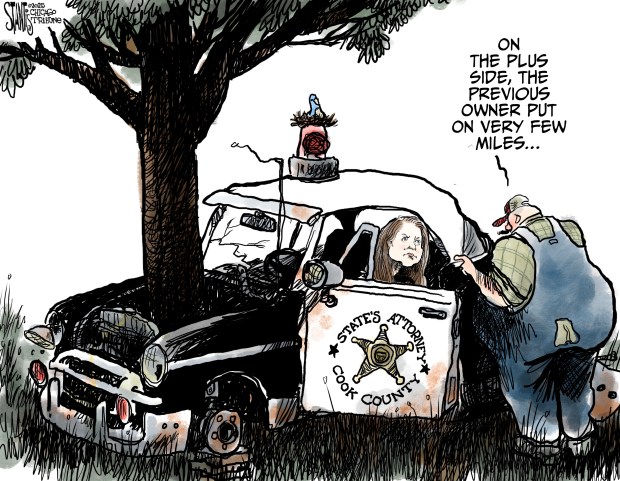The bluffs on the shore of Lake Michigan north of Chicago are beautiful. Protecting them is important, not just for aesthetic reasons but also to safeguard the high-priced lakefront properties along the North Shore from the ravages of erosion, the danger of which only is increasing.
But most of those bluffs aren’t parkland. They’re private property. So protecting them comes at a cost — to someone.
Will it be the affected homeowners, who promise a legal battle? Or will it be village taxpayers?
One thing we’ve learned watching this pitched battle underway in Winnetka: Hell hath no fury like a property owner who paid seven figures for their homestead watching their own representatives erase substantial portions of their land’s value.
The ordinance the Village Board just enacted was a response to the controversial move by private-equity mogul Justin Ishbia to consolidate several parcels of lakefront property and remove bluffs in order to build a new mansion. Ishbia got all the necessary rules and permits at the time. But that history has prompted the board to take steps to stop the same thing from happening in the future.
The resultant ordinance places new restrictions on lakefront property owners in the name of preserving the bluffs. Several of those owners say they will sue the village for compensation for the resulting loss in property value. More than two dozen affected homeowners spoke in opposition at the recent board meeting.
The legal battle looks to be intense unless cooler heads prevail. One problem with picking a fight over something as sensitive as property rights in a moneyed burg like Winnetka is that those who feel victimized have the means to hire the big guns — in this case, Baker McKenzie. A lawyer for that firm told the board that its action would reduce the typical buildable portion of affected owners by about a third.
Village President Chris Rintz at the meeting said he’d hoped the board would delay action to see if a compromise could be found with the lakefront residents, noting correctly that a legal battle would cost both the plaintiffs and taxpayers plenty, even before the cost of any sort of resolution, according to a report in Winnetka-Glencoe Patch. The board went ahead and approved the measure on a 5-0 vote anyway.
It would have been preferable to forge a compromise before board action, but that shouldn’t keep the parties from continuing to try. A legal war is in no one’s interest. But, if there’s no deal forthcoming, the village out of fairness probably ought to start negotiating compensation for the affected owners.
Let’s not take this to the U.S. Supreme Court, OK?



